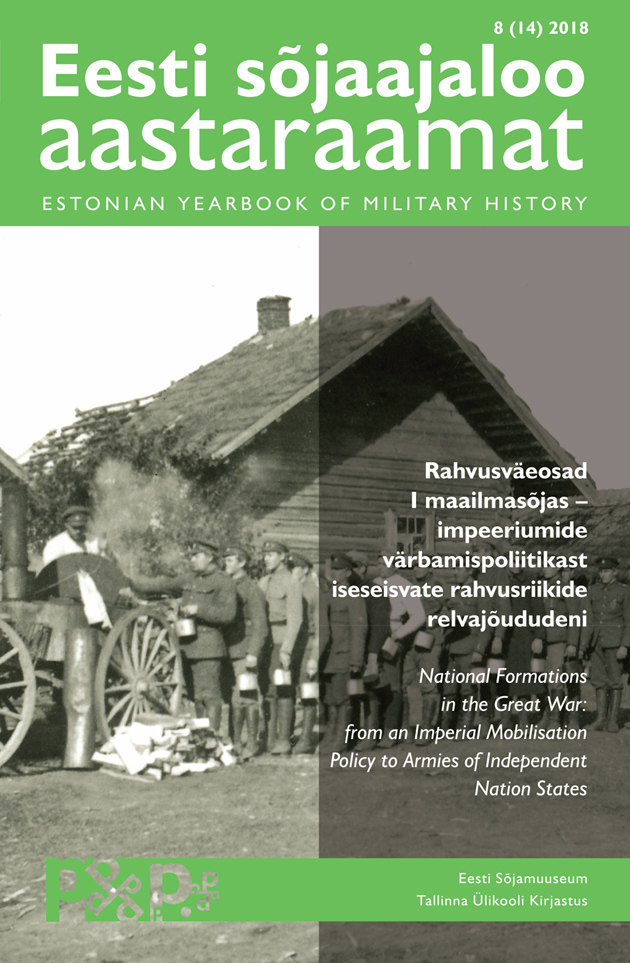Võideldes kotka ja lõvi varjus: saksid ja württemberglased Saksa armees 1914–1918
Fighting in the Shadow of the Eagle and Lion: Saxons and Württembergers in the German Army, 1914–1918
Author(s): Gavin WiensSubject(s): Military history, Pre-WW I & WW I (1900 -1919)
Published by: Tallinna Ülikooli Kirjastus
Summary/Abstract: This paper examines the relationship between two of the “lesser” contingents of the army and the Supreme Command during the First World War. In contrast to Prussia, which simply by virtue of its geographical size and large population dominated both the army and the empire, and Bavaria, whose monarch possessed virtually unrestricted control over his army in peacetime, the Saxon and Württembergian contingents were subject to frequent and sometimes humiliating interference from Berlin. In the decades before 1914, only two native Württembergers rose to command the XIII Army Corps, a formation which was composed almost exclusively of men from the South German kingdom. This interference created anxiety. As late as autumn 1911, the Saxon ministry of war was desperate to seek confirmation from its Prussian counterpart that rumours of a new, less favourable military convention between the two states was indeed fabricated. The resentment of Prussian interference and the suspicion of Prussian intentions only increased during the war. As a result, Saxon and Württembergian officers dedicated considerable time and effort to defending their monarch’s military rights and passing along requests from their capitals to the Prussians. Whereas some of these requests, like the appeal by the king of Saxony in the summer of 1916, fell on deaf ears, others did not. This paper assesses the extent to which Saxony and Württemberg got their way in questions of personnel appointments and troop transfers. In doing so, it highlights the importance of the peculiar military hierarchy of the empire as a reason why some non-Prussian states had a voice in administrative and operational decisions and others were left out entirely.
Journal: Eesti Sõjaajaloo Aastaraamat
- Issue Year: 8/2018
- Issue No: 1
- Page Range: 13-26
- Page Count: 14
- Language: Estonian

